Case Study: Storytelling Through Brand Design
A successful rebrand goes far beyond flashy graphics and high-res photos. It tells a story. It positions a product to fulfill the wants and needs of the consumer. Following the rebrand journey of Lettuce Grow, take a look at how visual elements can enforce the mission of your brand, engage your consumer and cultivate incredible results.

Lettuce Grow introduced a sleek, revolutionary, hydroponic growing system that makes growing food from home accessible to the modern lifestyle. However, its branding, to everyday people, presented its product as just another gadget for gardening enthusiasts, as opposed to a lifestyle that anyone can benefit from. The previous website was cluttered and disorganized, leaving the visitor with mixed messages. The bright, colorful, cheery nature did not communicate a premium product. While a bright website is not inherently bad, it isn’t right for the millennial consumer that expects a Peloton or Away Luggage look and feel.
At ONA Creative, we repositioned the Lettuce Grow brand in a way that not only reflects the premium quality and functionality of the product, but also drives home the brand’s core values and key messaging, which encourage people to lead healthier, more sustainable lives. Simultaneously, by highlighting these core values, we positioned Lettuce Grow squarely at the target consumer intersection of food, wellness and sustainability.
Through the brand strategy and brand identity, Lettuce Grow has evolved into a brand that makes the “growing your own food” lifestyle thoughtful, timeless and efficient. Here are the 8 elements that transformed Lettuce Grow.
1. Logos
The Lettuce Grow brand mark represents the cycle of growing food on the Farmstand, while the hidden triangle suggests a strong foundation, upward movement and a nod to the food pyramid. The Lettuce Grow wordmark is used as the primary logo in combination with the brand mark when the opportunity permits. The curved crossbars in the letter E create a unique and iconic look, connect to the brand mark, and give a nod to growth.


2. Icons
All of the icons were hand-drawn to carry on the same elegant, minimal visual language as the brand mark. Futuristic, yet approachable. Clean lines reflect the premium look and feel of the rebrand.

3. Colors
The new color palette was inspired by the colors and textures found in nature, specifically those found on a farm. Primary colors of recycled white, natural black and kale are the core brand colors that should be used when introducing the brand and prominently thereafter. A mixture of earth tones juxtaposed with a touch of bright colors. Off-white and off-black because there is no such thing as pure white or pure black in nature.
The secondary color palette was inspired by some of the brighter fruits and veggies one can grow on a Lettuce Grow Farmstand. Secondary colors are intended to be used very sparingly to add an element of playfulness to the otherwise muted color palette.
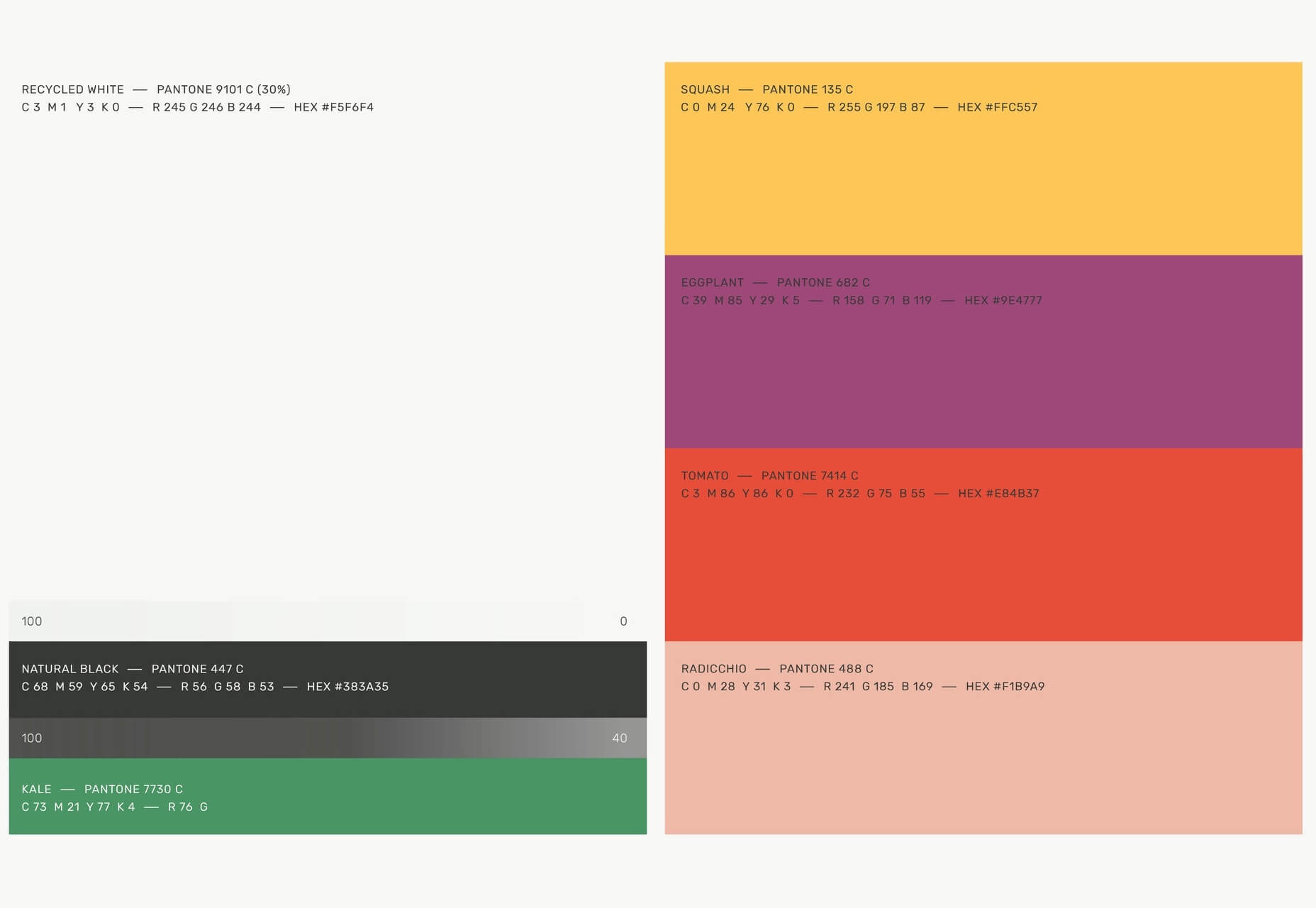
3. Typography
Consistent use of typography allows consumers to immediately recognize any brand, and Lettuce Grow is no different.
We selected Rubik as the primary typeface. Rubik's simple and geometric features embody the modern aesthetic we wanted to achieve.
Source Serif was chosen as the secondary typeface. It is a classic sans serif font that softens the brand and creates a sense of class.
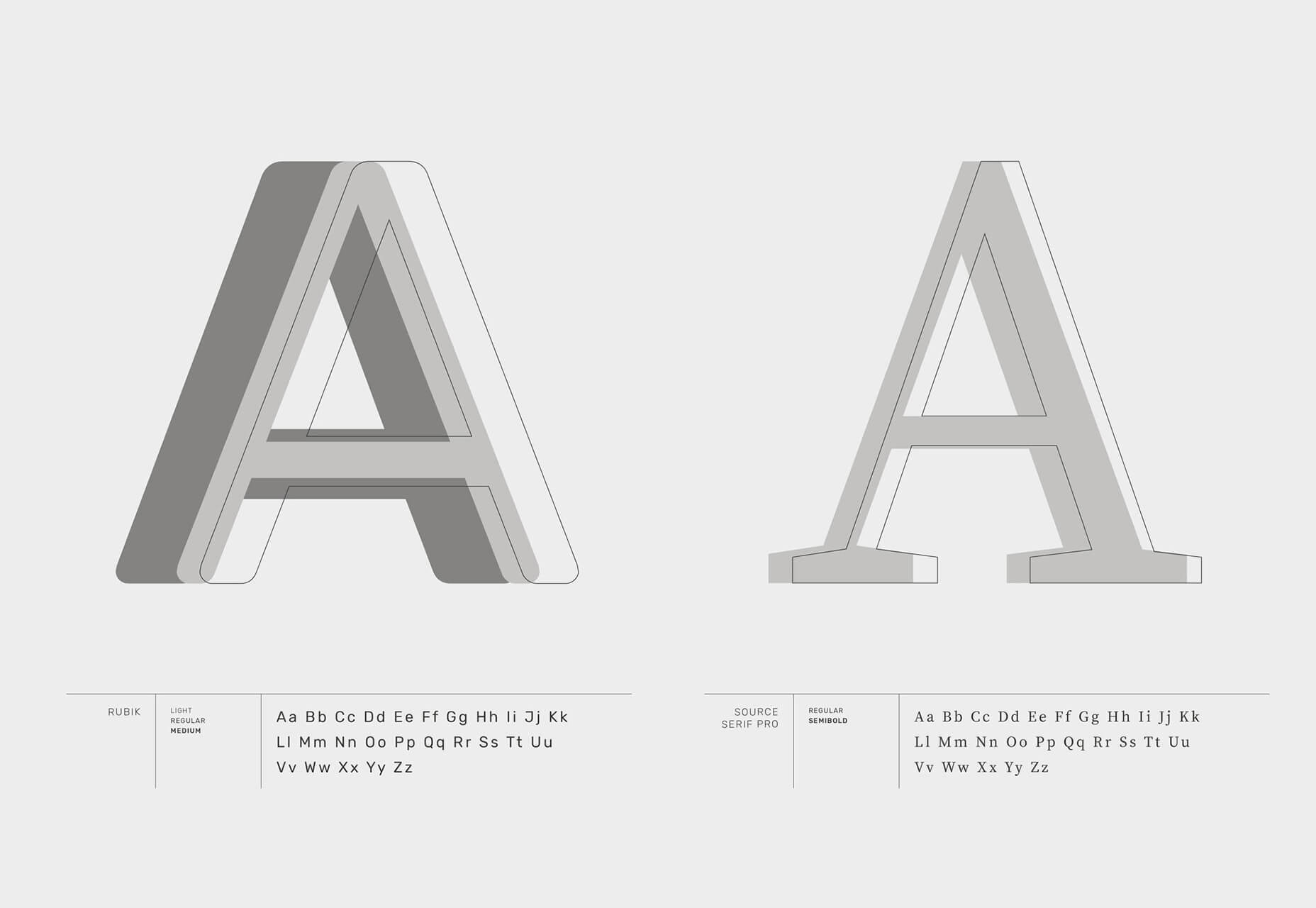
4. Website
The website was redesigned with simplicity and premium quality in mind. We wanted our viewers to immediately sense and understand the ease and simplicity of having and using the Lettuce Grow Farmstand. As the consumer scrolls through the site we break down every potential buying barrier to present this beautiful system. In the first month after the launch of the new website, Lettuce Grow saw a 15% conversion rate increase.
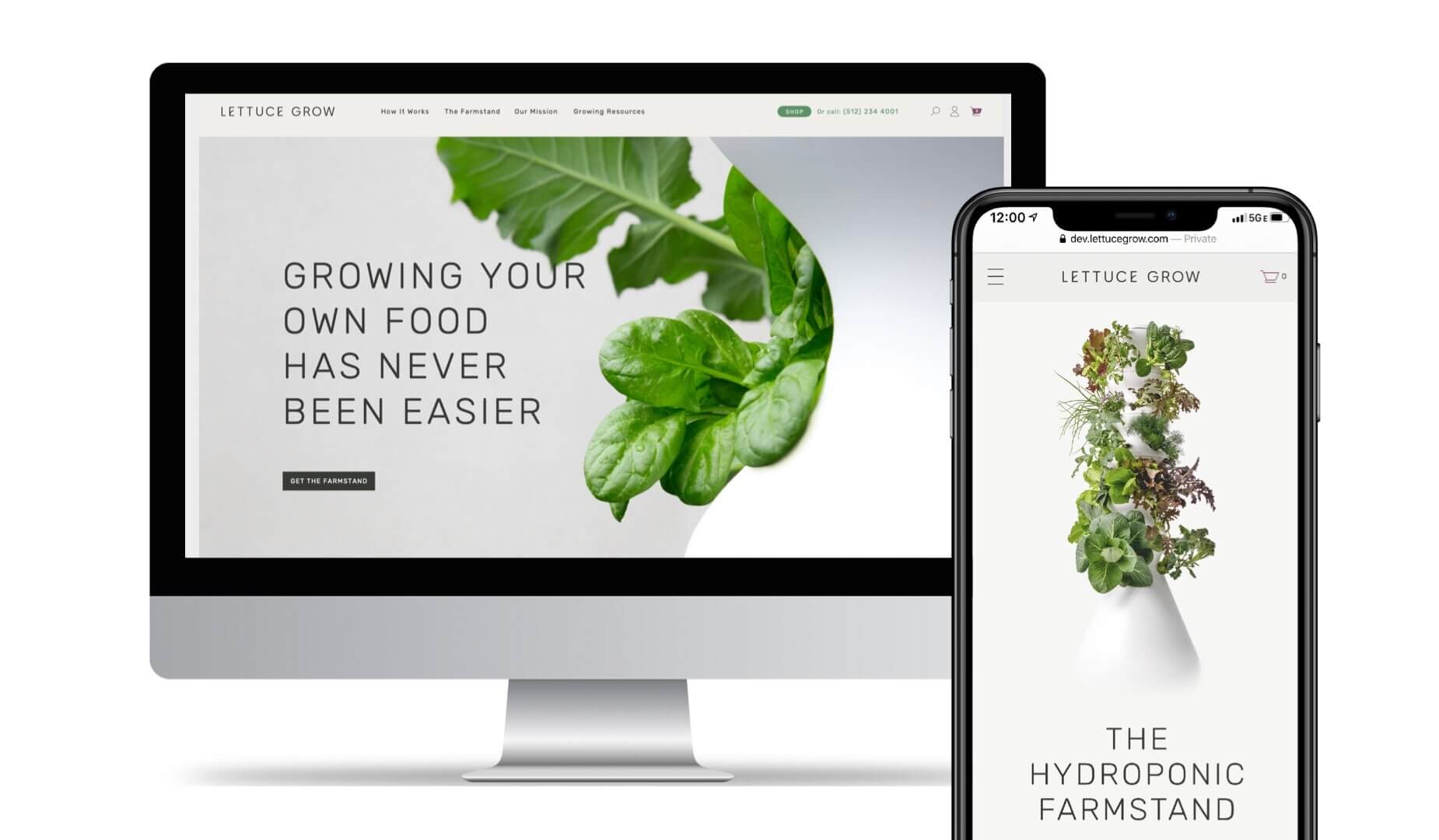
5. Packaging
Understanding that the product itself was forward-thinking and beautifully designed, we wanted to create a thoughtful, timeless and minimal brand. The packaging is a perfect expression of this efficiency, featuring the brand mark on one side and the wordmark on the other.
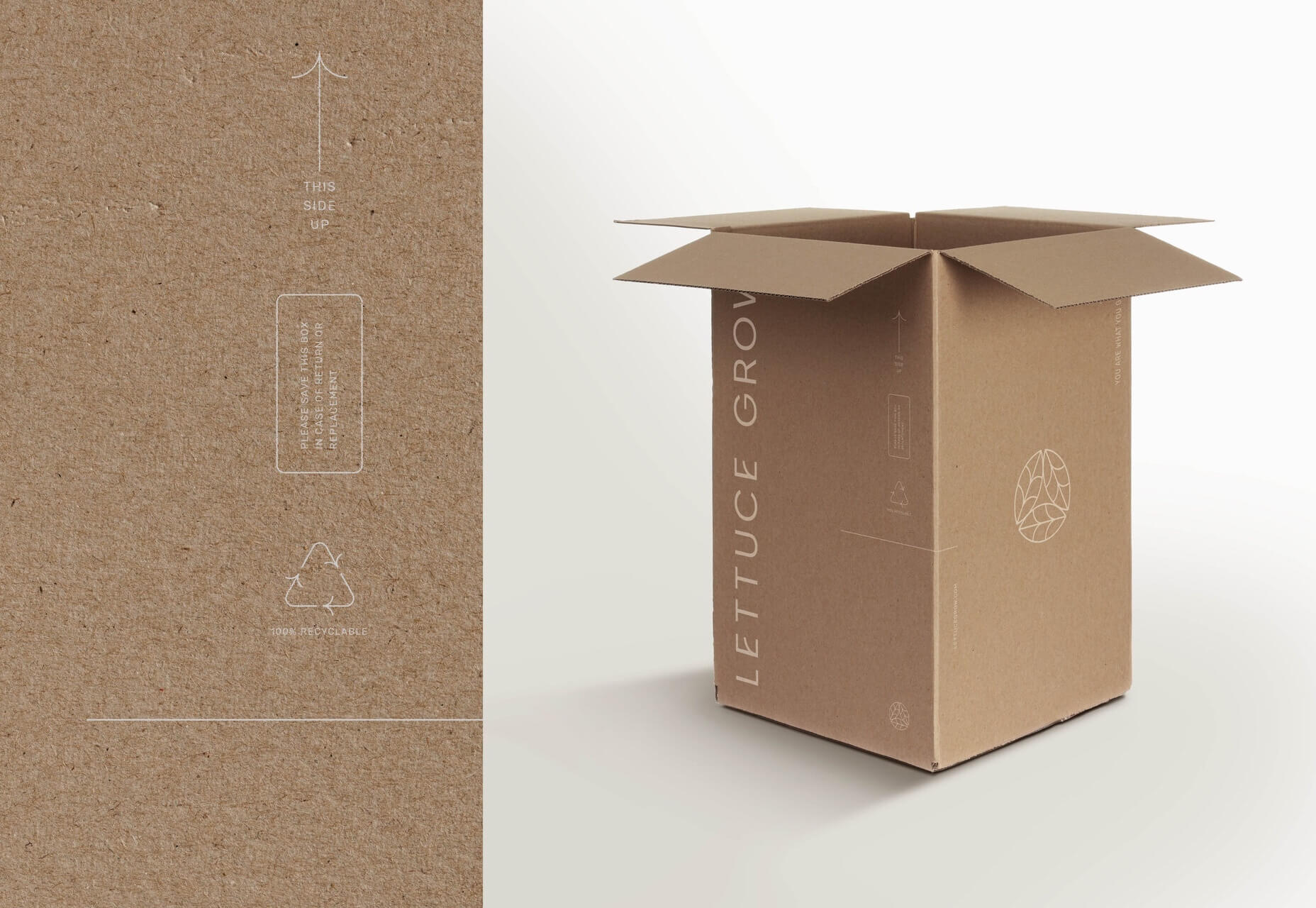
6. Photo
The photography captures conscious modern people and families living the “grow your own” lifestyle. Grey and white tones are emphasized, with pops of green coming from vegetables. Sleek and modern aesthetics are complemented by organic raw materials and textures including stone, wood and concrete.
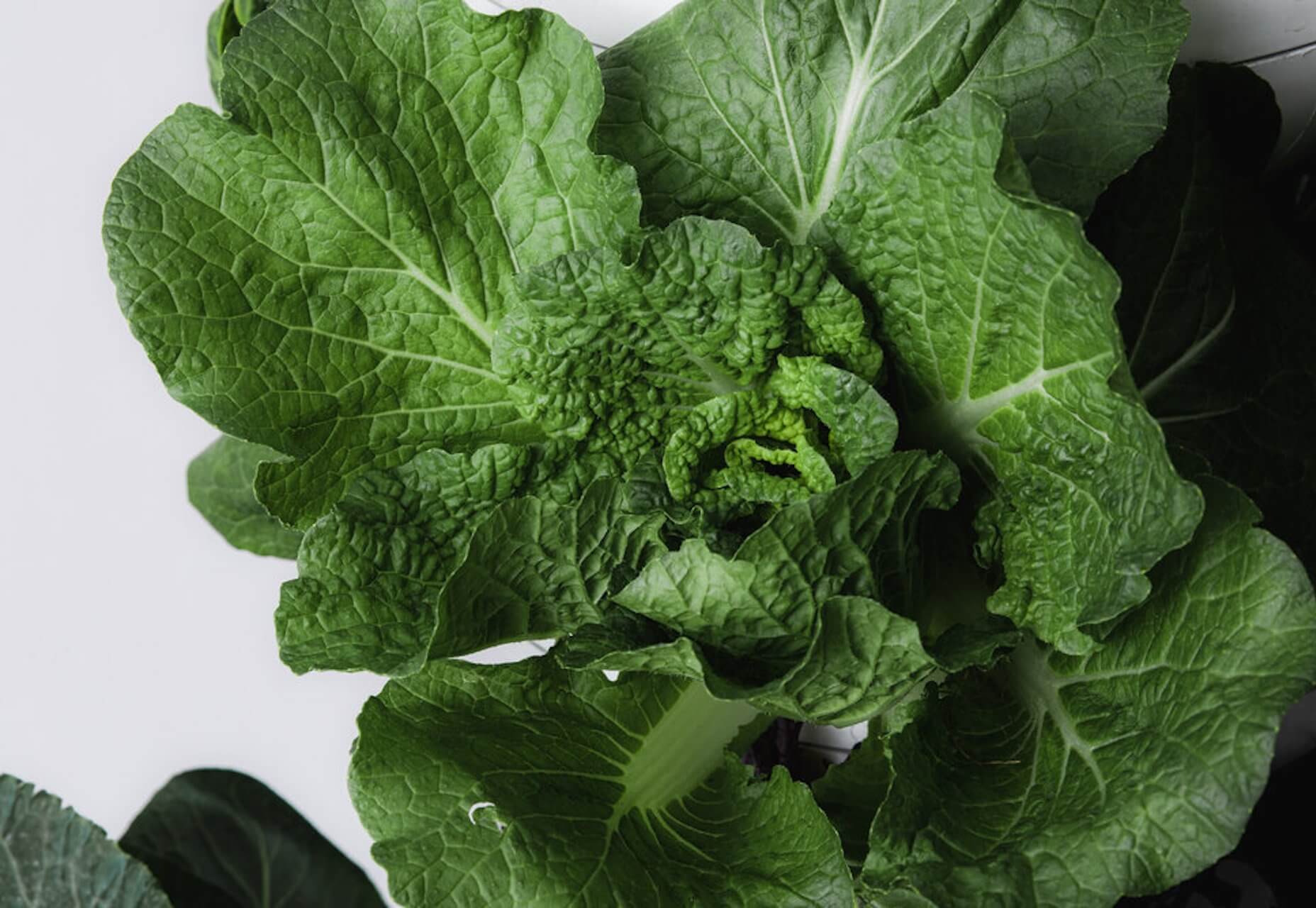
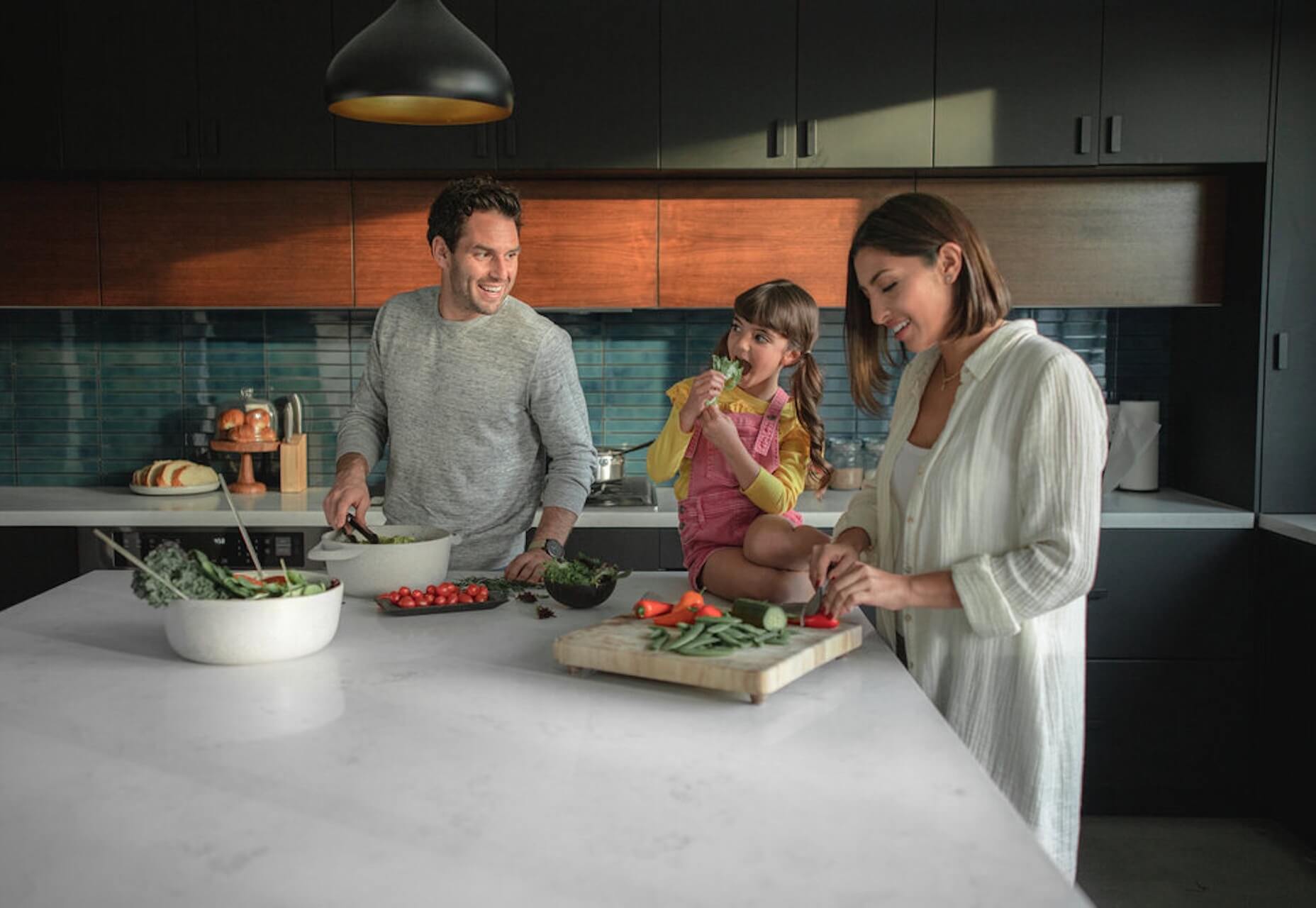
7. Social
The social strategy and content evolution reflected the aesthetics of the rebrand, creating a clean, premium look and feel. The content educates, encourages and engages the active Lettuce Grow community. Everything from social icons to testimonials was thought out, custom-designed and executed with the brand in mind.
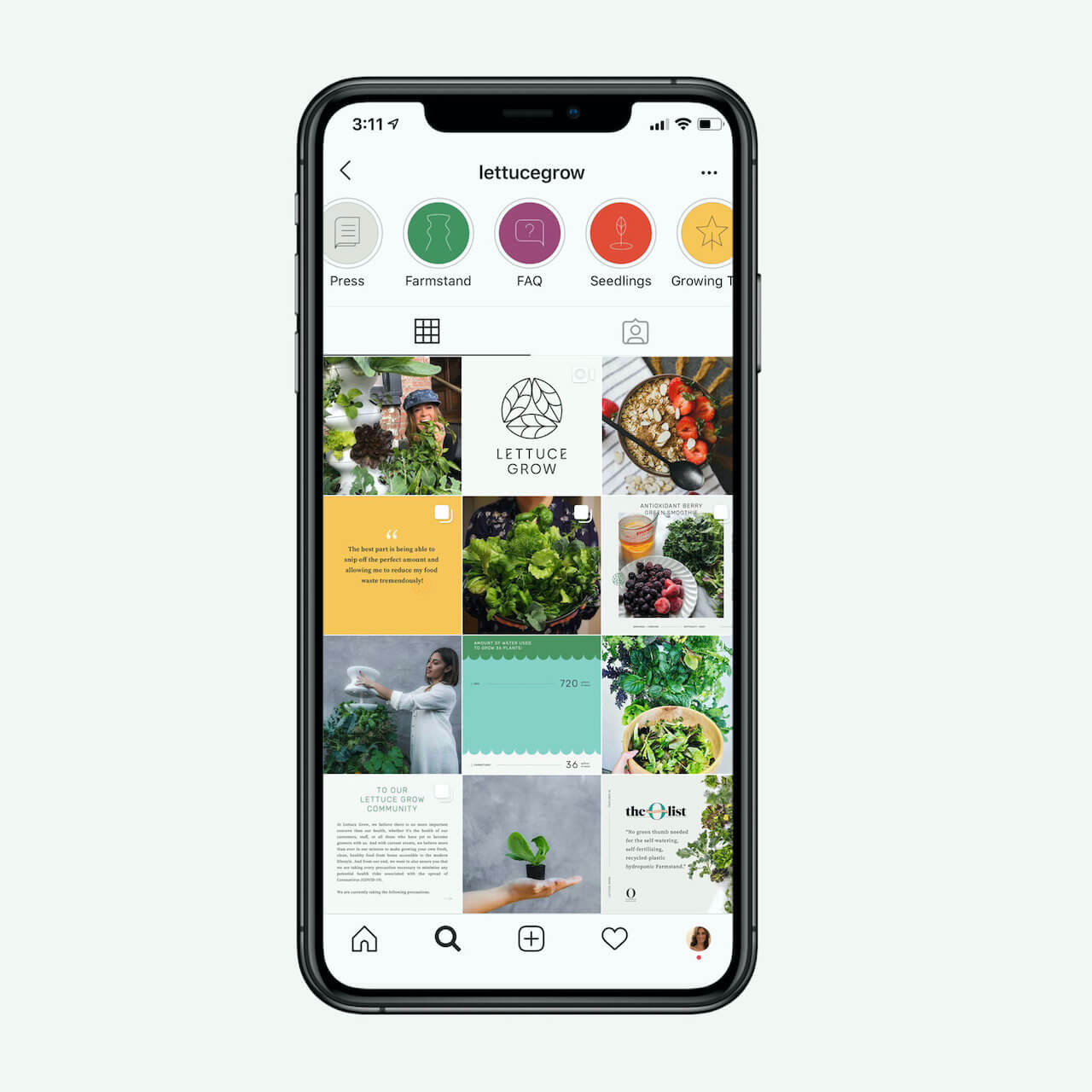

8. Email
We redesigned the newsletter, and built out the welcome and post-purchase drips with conversion in mind.

Reaction
Reflecting on the consumer response to this thoughtful, modern, minimalist brand identity, it’s clear that the bright and poppy original brand identity did not resonate with this audience. The updated visual elements appeal to the values and sensibilities of millennial consumers that are willing to invest in a product they believe in, and that tangibly stands for their values. Authenticity. Sustainability. Innovation. No mixed messaging here.
Each design element works like a chapter in the overall story of Lettuce Grow: a story that empowers people to live sustainably and invest in a healthy, all-natural food source. Lettuce Grow once offered what was perceived as a mere gardening gadget. Now it offers a holistic lifestyle that can be passed onto future generations. There’s an enormous difference. The logos, icons, typography, website, packaging, photography, social, and email assets are geared toward a target audience that values sophistication, luxury, and simplicity. Goodbye neon colors. Goodbye clutter. Hello Lettuce Grow.














